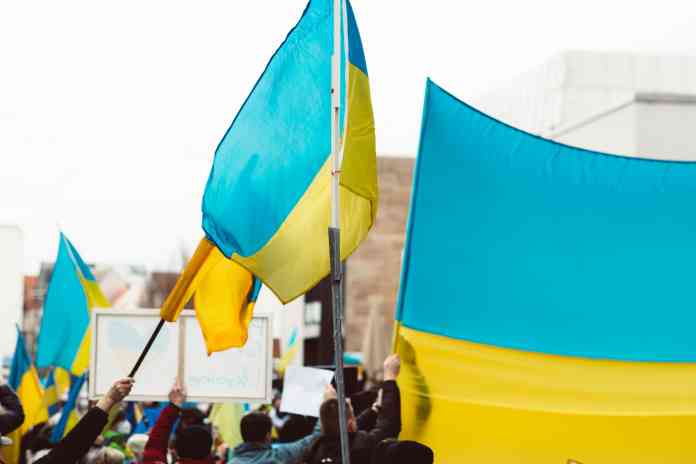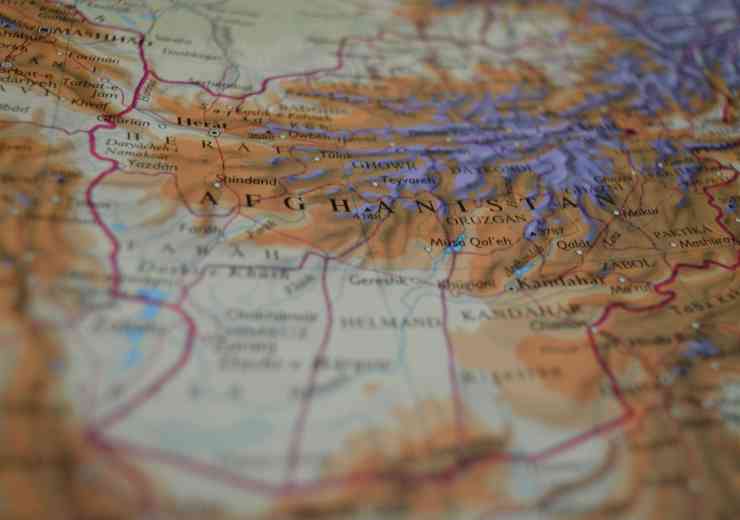
Crisis Comms: Countering the Russian narrative
Russia has always had a firm grip on its domestic news agenda and has been adroit at managing its international audiences. President Zelensky, who has provided an astonishing lesson in crisis comms, has called Russia’s actions in Ukraine ‘state terrorism’. He is also one of the reasons why media control appears to be slipping from the Russian bear’s grip.
In the UK broadcasters have a statutory obligation to present the news in a balanced manner. On the Ofcom website the regulator makes it clear that news in whatever form must be ‘reported with due accuracy and presented with due impartiality’. In Russia the opposite view prevails where broadcasters are required by their media watchdog, Roskomnadzor, to toe the government line.
The BBC Monitoring service has been looking at what Russians are watching and the Ukrainian narrative they disclose is the reverse of what we are seeing in the West.
Russia's two most popular television channels, Rossiya 1 and Channel One, are full of anti-Ukrainian news. Their forces, viewers are told, are responsible for war crimes in the Donbas region while Russian soldiers were sent in to ‘demilitarise and denazify Ukraine’. Typically, events in the region are not referred to as a war but rather as a ‘special military operation’.
President Putin recently claimed Ukraine is using women and children as human shields and this was echoed by a correspondent on Rossia 24 who said: ‘They behave like fascists, in the very sense of this word: neo-Nazis put their hardware not just next to residential houses but where children take shelter in basements’. This segment was captioned: ‘Ukrainian fascism’.
Social media news
In Russia, as elsewhere, elderly members of the population tend to get their news from TV whereas younger people rely on social media and online sources. The Russian state is doing its best to control online news and has made moves to restrict Facebook which has been used by activists to counter the state narrative and as a tool to organise protest events.
Former UK deputy prime minister and now Facebook president of global affairs Nick Clegg said: ‘Yesterday, Russian authorities ordered us to stop the independent fact-checking and labelling of content posted on Facebook by four Russian state-owned media organizations. We refused. As a result, they have announced they will restrict the use of our services.’
At the time of writing, Russian officials have just taken the radio station Ekho Moskvy off air and blocked the website belonging to the internet TV channel Dozhd.
The UK government has hit back branding Russian state-controlled international television network RT ‘a tool of Kremlin disinformation.’
Currently if you try to access RT in the UK this is the online message you receive: ‘403 - Forbidden. That’s an error. Client does not have access rights to the content so server is rejecting to give proper response. That is all we know.’
The long table
Sometimes the Russian government doesn’t help itself. Look at the photos of Vladimir Putin sat at one end of a massively long table with his anxious looking generals at the far end. Compare them with the pictures of Ukraine’s president dressed in fatigues photographed with his troops.
Remember at the start of the invasion Russia said President Zelensky had fled the country, making it hugely important for Zelensky to remain visible. We will return to the Ukrainian president shortly. Was it likely that a former comic actor could become a wartime leader? The Kremlin clearly didn’t think so.
Rule number one
Across the pond the US are playing an aggressive and unusual media game. To rebut Russia’s narrative President Biden’s government has released pictures and information that would once have been classified. Think of the pictures of the 40-kilometre convoy of Russian troops bearing down on Kyiv.
Before the invasion was underway and while most people were hoping it would never happen, Biden said all the security information he was seeing pointed inevitably to a Russian invasion. The US government’s intent has been to rob Putin of any element of surprise.
Daniel Fried, former US Ambassador to Poland, told The Hill: "Control of the narrative is important for setting the background against which governments will make decisions. So, high marks to the Biden people, they’re all in. This is crisis mode, all the senior officials are all in on this. I don’t think Putin expected that."
Rule number one when it comes to crisis communications is to fill the information gap. The Russian government understands that, hence their widespread use of misinformation, including doctored pictures to push their narrative of events. But the US have been equally agile by flooding both traditional and new media with information. Not leaving an information vacuum for your opponent to fill has left the Russian’s playing catch-up.
Google reviews
But it’s not all about what governments say and do. Tech savvy young people are all over this. Who would have thought Google reviews and Trip Advisor could have a role to play in the information war? The hacking group Anonymous called on people to leave reviews on Russian restaurant and business sites explaining what is happening in Ukraine.
A suggested restaurant review ran as follows: ‘The food was great! Unfortunately, Putin spoiled our appetites by invading Ukraine. Stand up to your dictator, stop killing innocent people! Your government is lying to you. Get up!’
This has been picked up by many with one advocate warning people not to leave any personal data and tweeting: ‘The point is to push information to the Russian civilian population being lied to by Putin.’
Another post on Twitter reads: ‘Every single restaurant I have clicked on so far had at least one of these reviews. The power of social media.’
Staying with Google, there have been concerns raised that Russian troops are using Google Maps to co-ordinate military activity and to pinpoint their intended targets. A Google spokesperson told BuzzFeed News: ‘Out of an abundance of caution, we are removing user contributions like photos, videos, reviews and business information and all user-submitted places from Google Maps in Ukraine, Russia and Belarus since the invasion began, and are temporarily blocking new edits from being made.’
Social media heroes
As the Ukraine crisis unfolds, social media heroes have emerged in many forms. The brave woman who confronted Russian soldiers saying they should put sunflower seeds in their pockets which would bloom when they died. As the world now knows the sunflower is Ukraine’s national flower which has since become a symbol of the country’s resistance.
Then there were the Ukrainian soldiers defending Snake Island in the Black Sea who were ordered to lay down their weapons by those on board a Russian military vessel. Their response was blunt to say the least: ‘Russian warship, go f*** yourself.’ It was at first understood that all those involved had died but that is now not thought to be the case.
President Zelensky
And finally, we come to President Volodymyr Zelensky, the comedy actor turned war hero. He was well known in his home country for playing a fictional president on television and was the Ukrainian voice of Paddington Bear before becoming the very visible defender of his country. There’s no doubt that his bravery and sense of what it takes to be a wartime leader has surpassed all expectations. He has galvanized public opinion and almost overnight become one of the most recognisable people in the world. This is something the Russian state is struggling to deal with and was certainly not something baked into Russian thinking when planning the invasion.
Ultimately the Russian military might and their willingness to engage in brutal war as seen in Aleppo and Grozny means they could crush Ukraine, but right now the war of words is slipping from their hands. It’s often said truth is the first casualty of war. President Zelensky is helping make sure that’s not the case where his country is concerned.
Written by Jim Preen. Jim is a freelance crisis management and communication consultant. He designs and delivers crisis simulation exercises, writes crisis communication plans and presents crisis management webinars. In another life he was a journalist working at ABC News (US) where he covered stories including the Gulf War, the Bosnian conflict, and the Concorde crash. He won two Emmys for his work.
Contact: jim@jimpreen.co.uk












